WWF-Ecuador and Ecuador’s National Chamber of Aquaculture make world’s first national commitment to conversion-free aquaculture
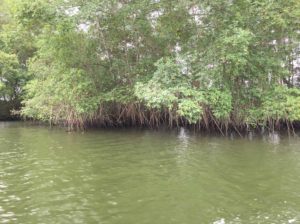
WWF-Ecuador and Ecuador’s National Chamber of Aquaculture (Cámara Nacional de Acuacultura – CNA) have signed an agreement to halt habitat conversion for shrimp farming across the nation. This agreement marks the first national commitment to conversion-free aquaculture from any country across the globe.
“The Ecuadorian shrimp sector has been characterized as an industry that cares for the environment and protects the surrounding ecosystems,” said Jose Antonio Camposano, Executive President of the National Aquaculture Chamber of Ecuador. “This agreement will allow us to further strengthen our industry’s commitment to the conservation of ecosystems as valuable as mangrove forests and serve as an example for other industries in Ecuador and worldwide.”
Ecuador is home to the largest mangrove forests in the Eastern hemisphere but has seen coastal habitat loss due to conversion for shrimp farming. Demand for Ecuador’s shrimp has been rising consistently over the last five years, and the nation is currently the world’s largest shrimp exporter – putting greater pressure on coastal habitat and wetland areas.
The new agreement between WWF-Ecuador and CNA will utilize geospatial data generated by Clark Labs to analyze and classify land cover in coastal regions where shrimp farming is most common. Using this research and data, based on scientific evidence, CNA can set a baseline and repeat this analysis year-over-year to reduce and ultimately end all conversion from shrimp farming across the country in the future.
“It is time for a change in the way we produce commodities such as shrimp, in a more environmentally friendly way, particularly respecting mangroves, and not contributing to their degradation,” said Tarsicio Granizo, WWF-Ecuador country director. “A large sector of the shrimp industry is now committed to moving towards more sustainable production and organizations like WWF are here to help make that happen.”
WWF’s Living Planet report recently revealed wildlife populations in Latin America and the Caribbean have declined by 94 percent since 1970. This alarming statistic underscores the importance of investing in this approach to monitoring conversion rates in Ecuador’s shrimp farming industry to ensure biodiversity and the nation’s natural ecosystems remain intact.
“Hopefully, one day when people ask which is the country with the most sustainable shrimp production, they point to Ecuador as an example of good shrimp production practices,” said Granizo.
Follow the Advocate on Twitter @GSA_Advocate
Now that you've reached the end of the article ...
… please consider supporting GSA’s mission to advance responsible seafood practices through education, advocacy and third-party assurances. The Advocate aims to document the evolution of responsible seafood practices and share the expansive knowledge of our vast network of contributors.
By becoming a Global Seafood Alliance member, you’re ensuring that all of the pre-competitive work we do through member benefits, resources and events can continue. Individual membership costs just $50 a year.
Not a GSA member? Join us.
Author
-
Responsible Seafood Advocate
[103,114,111,46,100,111,111,102,97,101,115,108,97,98,111,108,103,64,114,111,116,105,100,101]
Tagged With
Related Posts
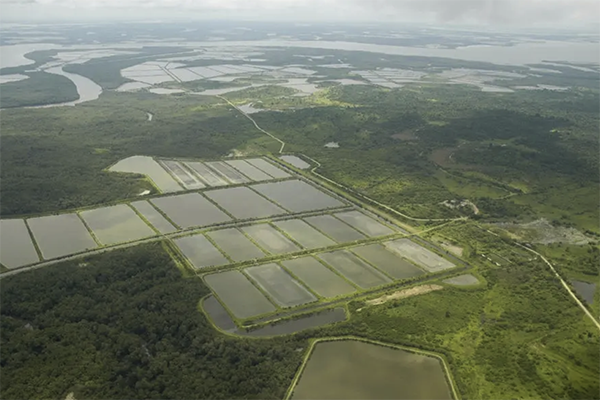
Innovation & Investment
IFC announces $45 million loan for leading Ecuadorean shrimp producer
Top Ecuadorean shrimp exporter Industrial Pesquera Santa Priscilla will replace diesel equipment with electric alternatives and add automation.
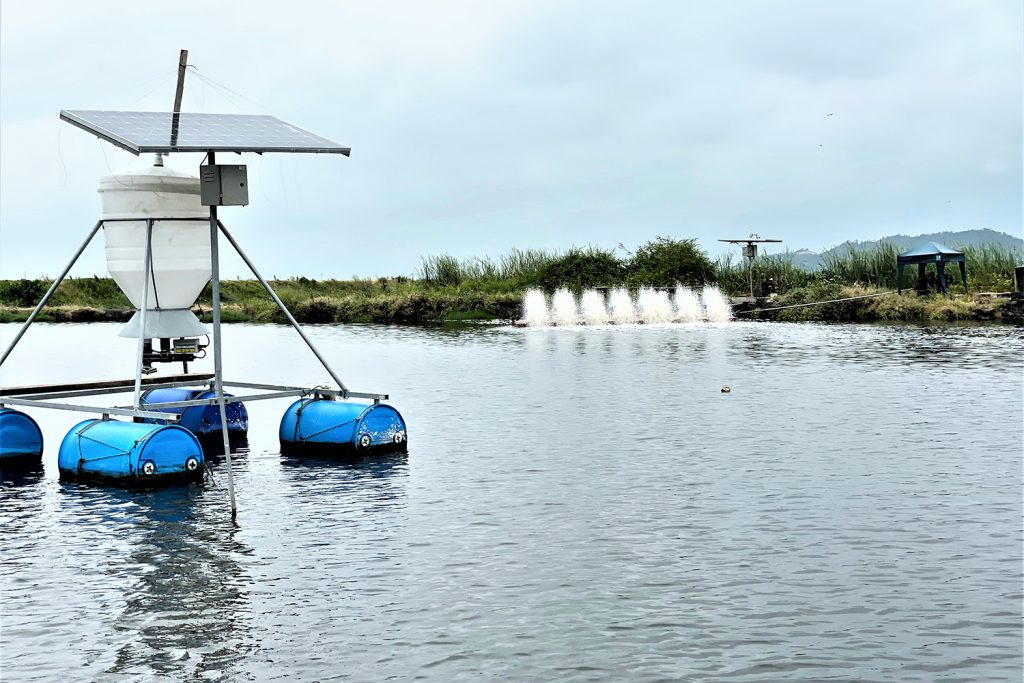
Intelligence
How automatic shrimp feeders impact water and soil quality of grow-out ponds in Ecuador
Authors attempt to environmentally assess feeding areas of large shrimp ponds with acoustic feeders, a key step to improving production efficiency.
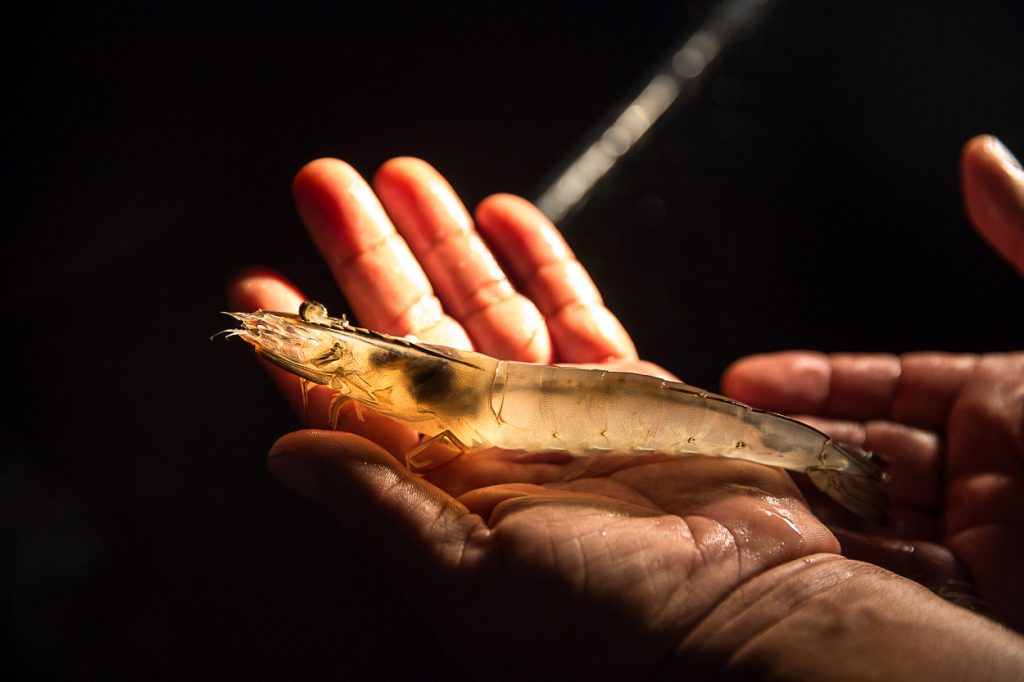
Innovation & Investment
World’s first fully integrated Pacific white shrimp genomic selection program established in Ecuador
The story behind the first wide-scale application of genomic selection at commercial scale for shrimp broodstock at Texcumar S.A.
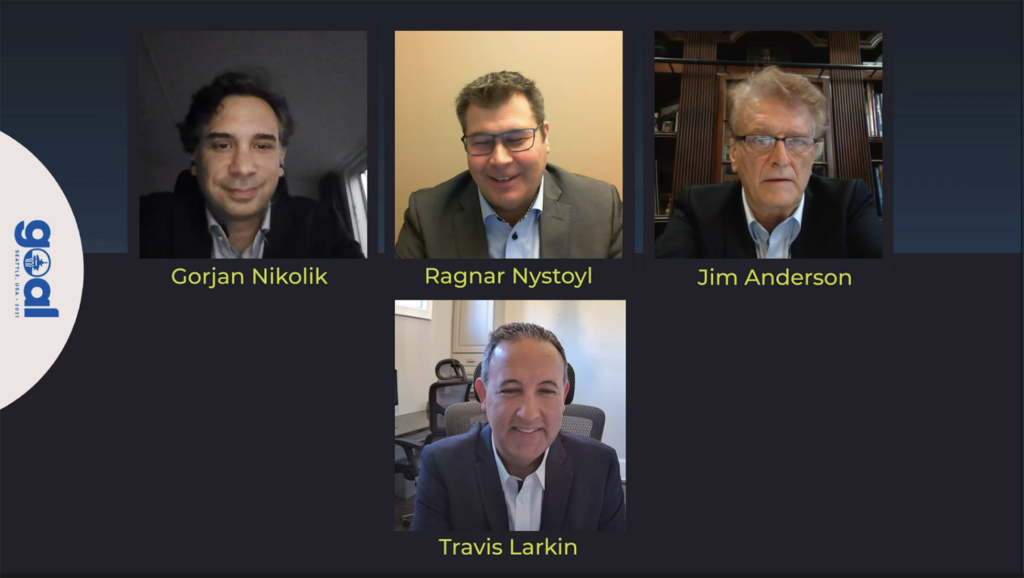
Responsibility
GOAL 2021: Growth ahead for the aquaculture industry
Discussion at the final GOAL 2021 event ranged from Ecuador’s booming shrimp sector to the ‘compass’ of the UN’s Sustainable Development Goals.



